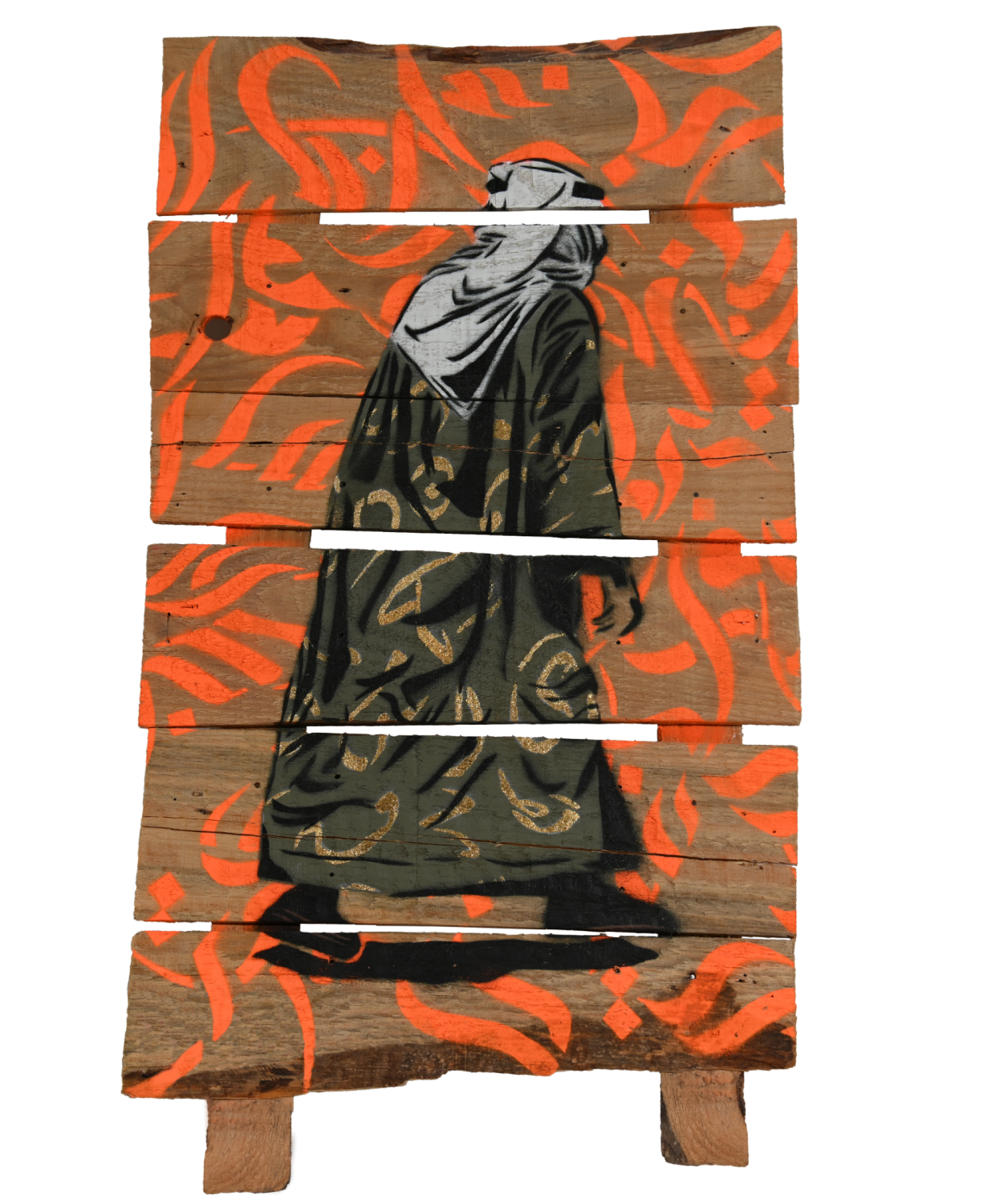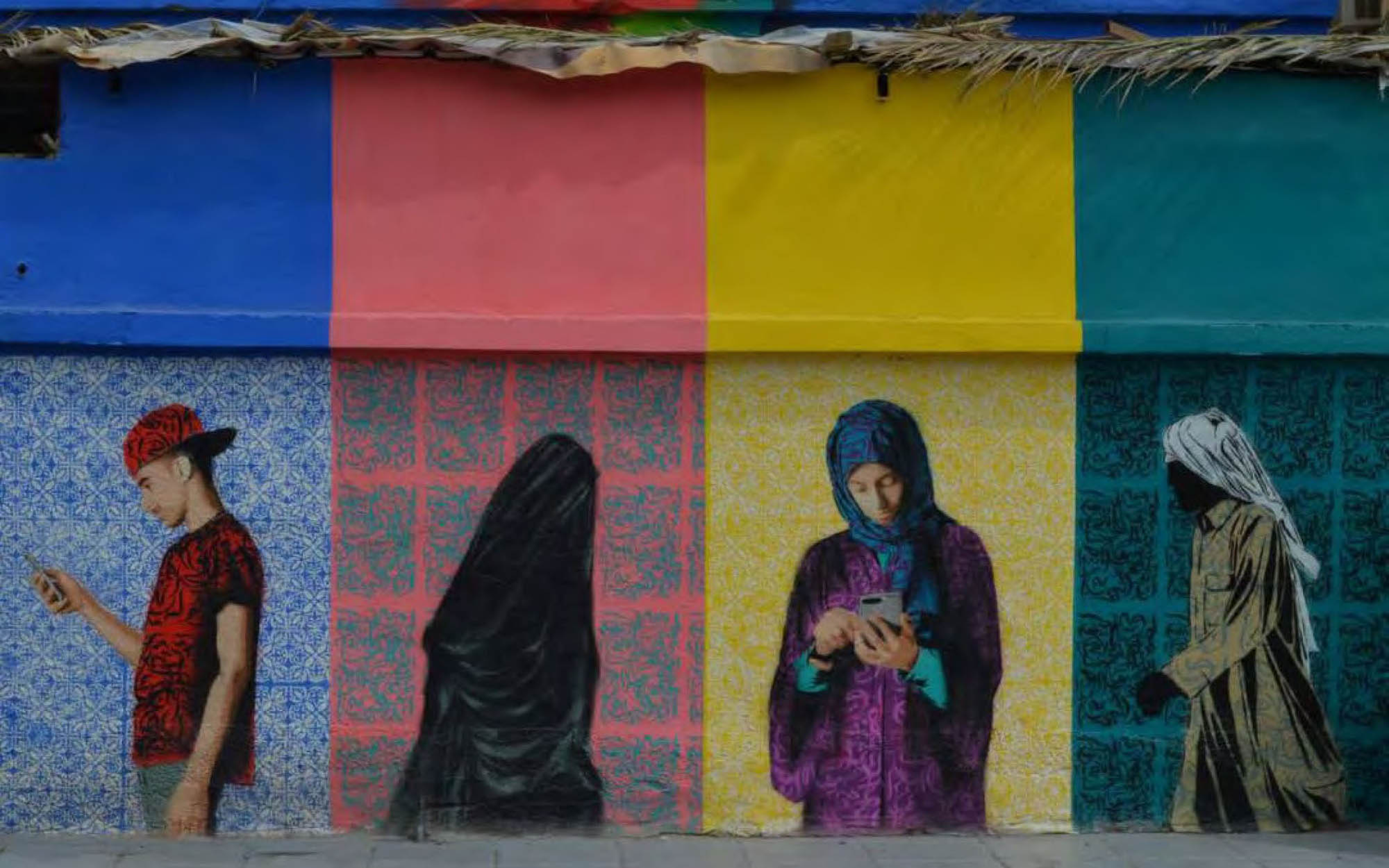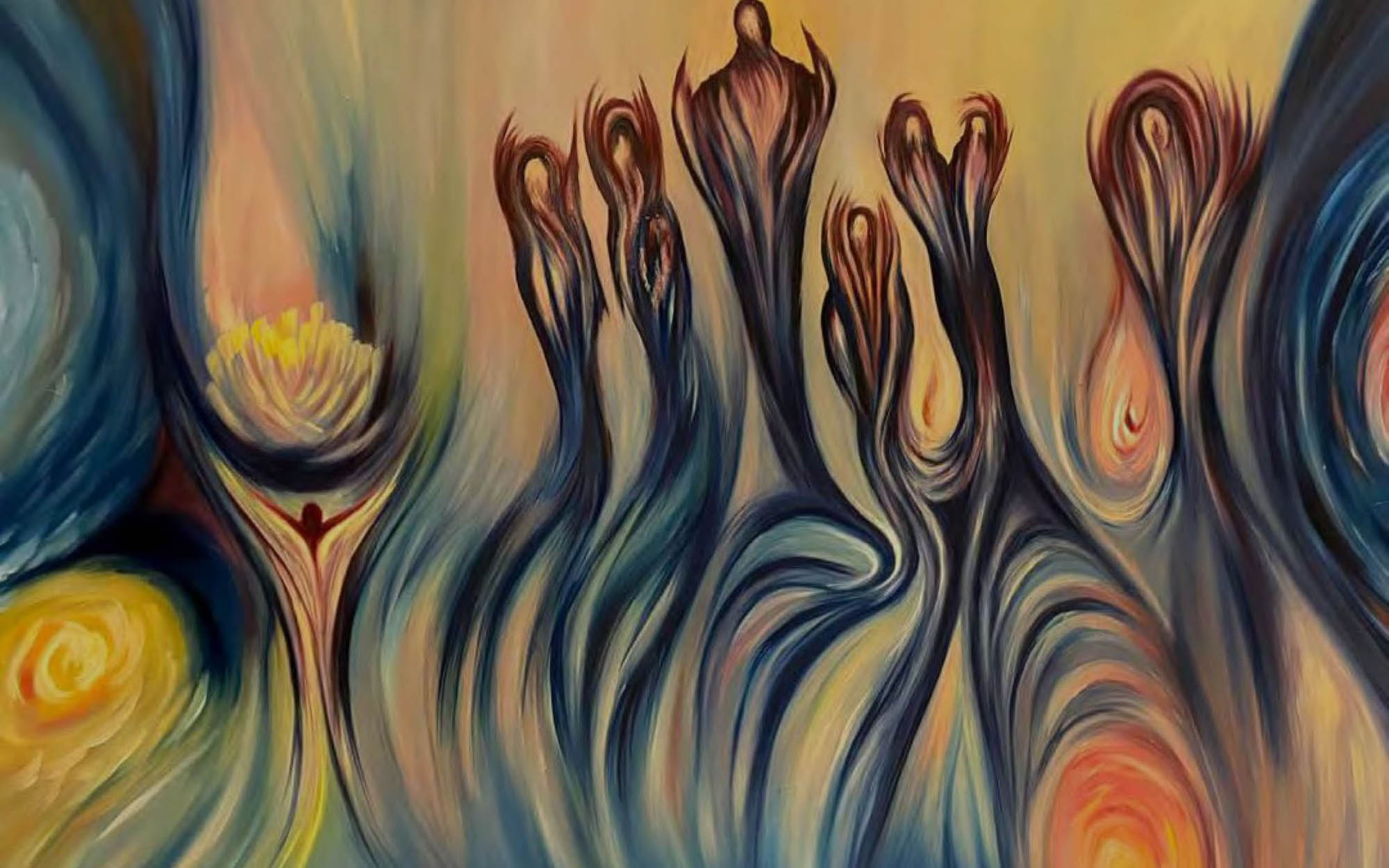The Watchful Women of Makkah Streets
"Quartier Populaire," by Zeinab Abdel Hamid.1956. Oil on canvas, 116 x 81 cm. Image courtesy of Barjeel Art Foundation, Sharjah
“Qaisana ya qais The men went to Hajj and you stayed Why? Get back to your home, slaughter a goat and bake some bread.” — Old Makkah song Al-Qais is a generations-old tradition unique to the women of the Makkah area, including Taif and surrounding neighborhoods.
For decades upon decades it had always been a sacred privilege and duty of those living in Makkah to help in any way they can with Hajj. If they are not performing it themselves, then they find themselves drawn to be in service to those going for this annual ritual, by greeting, hosting,
aiding, walking with and guiding them through all the processions. Still, some men (aside from the elderly or ill that couldn’t physically go) would elect to skip out on their duties. That’s where the women came in. With the majority of the men out of the area, the women filled the power vacuum to take to take over the running of the area. Some would wear men’s clothing and all would be out and about taking on a range of duties. They would patrol the alleys and streets, carrying a “shouba,” which is a long, thick wooden stick or baton, keeping the peace and deterring anyone from trying to commit any crimes.
They would be running businesses, helping the old and infirm and taking care of their families. Most of all though, whenever they found an errant man who should’ve been helping out with Hajj but wasn’t, they would be quick to give him a proper admonishing by reciting a variation on the lyrics above. This particular habit waned as the traditional sense of neighborhoods died out and modern urban development took over, but in its place women have been taking on more roles in assisting pilgrims, guiding and feeding them, helping the poor and so on. The work of a watchful patrol woman never actually ends.


